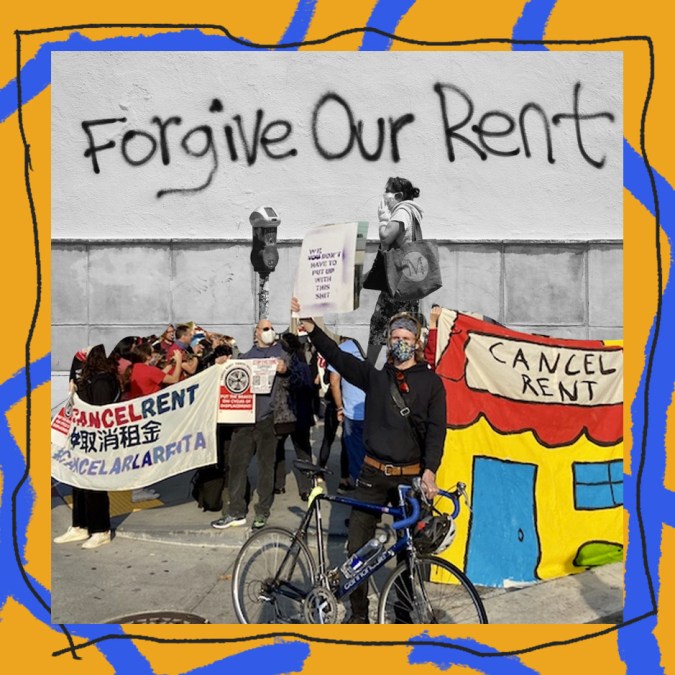K Romero*, a Mexican immigrant living in Pennsylvania, remains vigilant. After the 2016 election, Romero became active with a local progressive organization, but a commonplace obstacle soon emerged. The organization privileged the needs of white Democrats above everybody else’s, leaving women of color, like Romero, out in the proverbial cold. Racial exhaustion triggered Romero’s flight from the group but because she understands that authoritarian threats linger, she feels pulled back to activism four years later.
“I’m not going to sit and watch as fascism continues to rise,” she tells Remezcla. “I’m ready. I want to organize with a network of like-minded women of color. I’m just clueless about where to start.”
A Biden administration [is]… a harm-reduction strategy.
Many people living in the United States share Romero’s activated yet disoriented sentiments. Four years of overt racism, misogyny, homophobia, transphobia, xenophobia, religious extremism, anti-intellectualism, and anti-science policies have yielded a situation that mess doesn’t begin to describe. The forces strengthened by the Trump cult continue to endanger us and, while the election of Joe Biden signals some symbolic and material change, many activists and organizers understand a Biden administration not as a one-stop electoral solution but as a harm-reduction strategy. As historian Thomas Zimmer has written, the uphill battle of transforming the United States from a “white Christian nation, in which white Christian men are at the top” to “a multi-racial democracy that abolishes patriarchal rule” continues.

The mainstream media has congratulated Biden for winning the presidential contest and, while he and Vice President-Elect Kamala Harris gave much-anticipated acceptance speeches on Saturday night, Trump has yet to acknowledge his electoral defeat and deliver a conciliatory concession speech. Instead, on that same Saturday, Trump’s lawyer, Rudy Giuliani, spoke on his behalf, giving an anti-concession speech in the parking lot of New Jersey’s now infamous and heavily memed Four Seasons Total Landscaping.
Always a bitter coward, Trump has hidden from the public for days. He and his GOP collaborators, including Senate majority leader Mitch McConnell and Secretary of State Mike Pompeo, flagrantly continue to resist the transfer of power, Pompeo setting off alarm bells when he announced to reporters that “there will be a smooth transition to a second Trump administration.” Writer Masha Gessen has identified Trump’s refusal to accept the election results as an “autocratic attempt,” the attempt being the first of three stages to establish an autocracy, a dictatorship led by one man. Historian Timothy Snyder has written that Trump is attempting a “coup d’état” and warns that while the coup may seem poorly organized, its failure isn’t guaranteed. Resistance must make it fail and organizations like Hold the Line are mobilizing to do so.
While a years-long “political nap” might look appealing… now is not the time.
If the autocratic attempt is defeated, we still won’t be out of the woods. Writing for The New York Times, sociologist Tressie McMillan Cottom warns that this political “moment calls for radical direct state response to public crisis—big government projects, direct aid, swelling rhetoric…” Unfortunately, with his wishy-washy remarks about partisan unity, and his apparent enthusiasm for appointing Republican cabinet members, President-elect Biden is already failing to rise to the occasion. Writing for The Atlantic, sociologist Zeynep Tufekci issues a chilling forecast, describing our “situation [as] a perfect setup… for a talented politician to run on Trumpism in 2024.” Put differently, Tufekci points to the threat of someone like Trump, but who can speak in complete sentences, on our national horizon. Acknowledging that while a years-long “political nap” might look appealing, Tufekci writes that now is not the time.

Talia Lavin, the author of Culture Warlords, a book that reports on her undercover exploration of online hate communities, stresses that we must remain vigilant against the white power movement.
“It neither started with, nor will [it] end with Trump,” says Lavin. Many of us already have the skills to participate in the battle which Lavin has long been fighting and participation can begin with two simple steps: identifying and tracking the white supremacist groups active in our own backyards.
We must remain vigilant.
This information can be acquired by scouring local news, creating Google Alerts, or visiting websites like Southern Poverty Law Center’s which track such groups. In 2019, the SPLC monitored a total of 940 hate groups across the United States and the SPLC’s hate map shows that California harbors more hate groups than any other state—a grand total of 88. Activists have used information-gathering techniques to expose white supremacists lurking in various institutions and post-exposure, some white supremacists, like Indiana police recruit Joseph Zacharek and New York Daily News employee Daniel D’Ambly, have been fired. Some independent media outlets, like LA Taco, have also worked to publicize the movements and whereabouts of hate groups.
“Good antifascism is defensive work,” Lavin emphasizes. “Knowledge is definitely power in this case.”

In addition to the 72,700,030 butthurt racists who reportedly voted for Trump, we also remain in the midst ofa pandemic which scientists say will worsen as temperatures plunge and people seek warmth indoors. The projected surge in infections is predicted to wreak economic havoc that will disproportionately impact Black, brown, and poor people. Housing advocates warn that without interventions like federal renters’ assistance, the United States could experience an eviction crisis during the cruelest season: winter.
Community organizers like Jordan Wynne are bracing for this turn of events. For the last three years, Wynne, who spoke to us from Long Beach, California, has worked to advance housing justice, tenants’ rights, racial justice and environmental justice. They currently serve as a field organizer for Everyone In, an organization which advocates for policies that help foster an end to homelessness. Wynne expresses enthusiasm for the transition to a Biden Administration and they are delighted at the prospect of Biden appointing experts.
“At the federal level we’ve been dealing with a really incompetent HUD led by someone who has never been involved in housing and urban development.” Wynne is referring to HUD’s Secretary, retired neurosurgeon Ben Carson, whose most memorable achievement as a Trump cabinet member was catching COVID-19, likely at an election night party.

The approval of Measure J also heartens Wynne. In coalition with several other organizations, including Black Lives Matter Los Angeles, Everyone In campaigned for the measure’s passage. Vox hailed the victory as a win for BLM since it does, in fact, defund the police, “[requiring] that 10 percent of the city’s unrestricted general funds… be invested in social services,” housing included. Wynne has also campaigned for the passage of a local tenant protection ordinance as well as inclusionary housing policy and mentions that during Trump’s presidency, they’ve also struggled against trickle down Trumpism.
Racist messages issued by Trump have affected local politics, inspiring bold corruption, and Better Housing for Long Beach, a landlord and property owner’s advocacy organization operated and funded by Trump supporters, exemplifies this trickle down effect in action. Wynne has witnessed its members engage in fearmongering and NIMBYism and during a 2018 initiative, when housing justice activists were attempting to collect signatures for a petition, Trump supporters disrupted the campaign, stalking activists and harassing tenants, yelling at Latinx renters to return to countries they’d never been to.
Don’t get tempted by clout. Go to organizations.
Wynne attributes the vibrant political present, in particular the renewed interest in activism, to Black organizers who have “reactivated community consciousness.” For those like K Romero, who are excited but uncertain of how to get involved in activism, Wynne recommends finding local points of entry by surveying social media. Everyone In LA, for example, invites the public to participate in actions through its Twitter account.
“Educate yourself about what the issues are, what the problems are, and what possible solutions are,” says Wynne. “Google the issue. Find those who are working for housing justice. Find your local BLM or Gray Panthers.” Wynne also cautions, “But beware, some energy has moved to people using activism to accrue clout. Don’t get tempted by clout. Go to organizations. They will lead you in the right direction.” If we ignored the effects of Trumpism, his influence will linger and continue to mangle both our present and our future. Let’s roll up our collective sleeves and get to work.
*This person’s name was changed for protection purposes.




